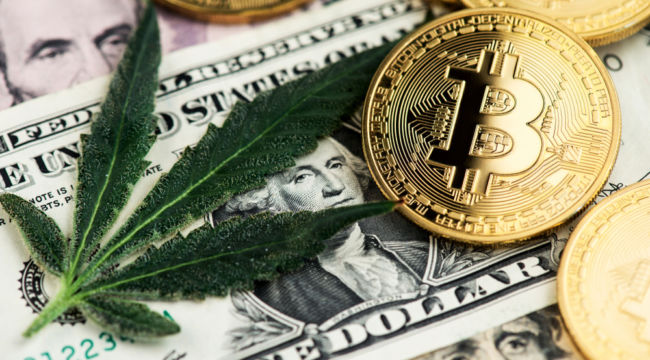Marijuana: Trade War Winner
U.S. markets received fresh hope following last week’s news that the U.S. and China plan to hold another round of trade talks soon.
It’s too early to predict what will happen. But it’s not too early to predict a major move for one particular type of investment strongly connected to the trade war: cannabis.
Yes, that’s right, cannabis. Let’s unpack that prediction for a minute…
You might be surprised to learn that pot has a connection to the trade war. How?
You see, Chinese consumers are big tobacco smokers.
In fact, there are more smokers in China than the entire population of the U.S. Think about that. It’s as if every man, woman and child in the U.S. smoked. As a result, it should come as no surprise that American tobacco farmers export most of their crop to China.
But lately, with tobacco export contracts being slashed by Chinese buyers, American farmers have been turning to another crop to hedge their bets: hemp.
As a reminder, hemp is a variant of the Cannabis plant that doesn’t get you high. It can be used to manufacture everything from rope and fabric, to plastics and insulation. Given its history in America, hemp is almost as American as mom and apple pie.
Some of the Founding Fathers grew hemp. And some think the original Declaration of Independence was written on hemp paper. During Colonial times, you could even pay your taxes in hemp!

Hemp fibers are incredibly strong, and they were used to make everything from rope to textiles and paper. We’ve found many additional uses for hemp, including using it to make super-strong plastics.
In the 1930s, thanks to the invention of new agricultural and processing machinery, hemp was touted as a potential “billion-dollar crop” that could be used in 25,000 products, create thousands of American jobs and reduce foreign imports.
Also in the 1930s, Henry Ford built a car out of hemp-containing panels, declaring them 10 times stronger than steel. He even used a sledgehammer to prove its impact resistance.

Hemp’s wonderful future never came to be, however. Hemp got caught in the federal effort to ban cannabis, despite the fact that hemp does not contain appreciable quantities of psychoactive THC. That’s what produces the mind-altering effects of marijuana.
But hemp is different…
Hemp only contains extremely low levels of the THC found in other cannabis strains. It can also contain high levels of cannabidiols (CBD), which have wide medicinal uses. In fact, we’re probably just starting to scratch the surface when it comes to CBD’s health benefits.
The passage of the 2018 farm bill officially legalized hemp at a federal level in the U.S., meaning that farmers are now able to purchase crop insurance on hemp, transport it across state lines and find a commercial market among manufacturers.
It’s not just tobacco farmers either — although they’re likely taking on hemp farming at the highest rates — grain farmers struggling with Chinese tariffs are also taking a closer look at hemp.
According to Reuters, U.S. hemp sales are expected to reach $1.9 billion by 2022. So a reliable hemp supply chain in the U.S. means that we’ll likely see more hemp-derived products hit the market soon. That could, in turn, help to drive ongoing demand for hemp.
And with pot still federally illegal, hemp-derived CBD is the only legal source of the substance today.
Weed’s a trade war winner, indirectly at least.
And the success of hemp farmers in the U.S. brings us another step closer to broader legalization.
One more thing…
Recently, CNBC broadcast an hour-long special called High Risk, High Reward: Cannabis Inc.
It takes a look at the current state of the marijuana market, spending just about equal time with cannabis advocates and cannabis detractors.
One of the pot investors interviewed is Danny Moses, the head trader behind one of the hedge funds that profited from getting the 2008 crash right in The Big Short.
He calls cannabis “The Big Long.” I’m inclined to agree, of course.
All told, the show misses quite a lot of the important research that’s come out in the last couple of years showing positive health outcomes for pot users as well as a lack of negative outcomes in jurisdictions where pot has been legalized.
Still, it’s a positive sign that cannabis investing is starting to pop on “mainstream” investors’ radar.
Below, I show you why bitcoin actually provides a powerful clue about the direction of the marijuana market, and why marijuana is poised for a major move. Read on.
Regards,
Ray Blanco
for The Daily Reckoning



Comments: